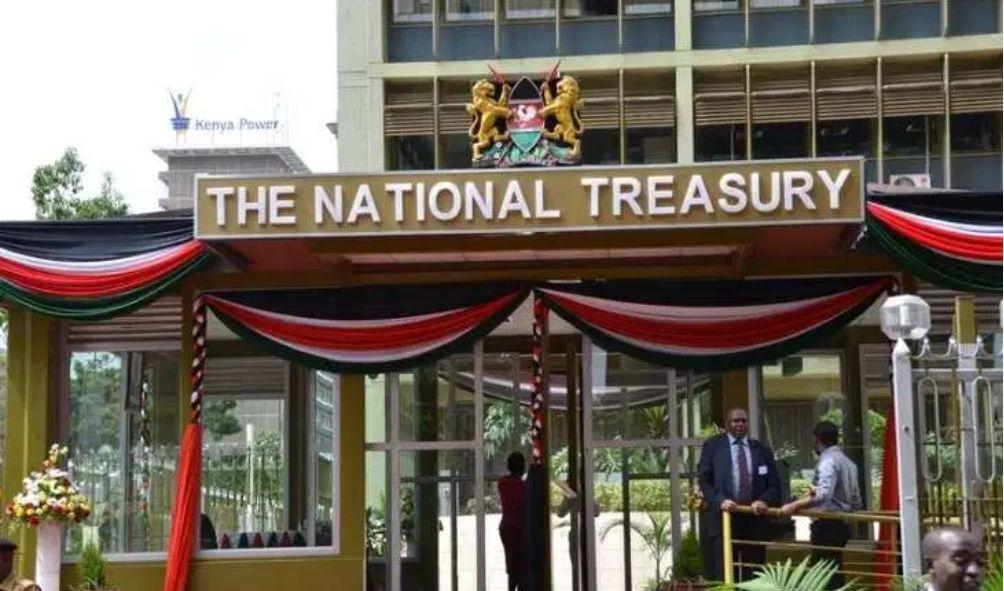Kenya Faces Sh375bn Revenue Shortfall, Escalating Cash Crisis
According to newly released Treasury data, a Sh375 billion revenue shortfall in the fiscal year ending June 30 nearly derailed government expenditure plans.
Total exchequer revenue for the period fell short of projections, with key financing sources including taxes and domestic and foreign borrowing falling short.
Ordinary revenue by the Kenya Revenue Authority (KRA) fell short by Sh101,4 billion of treasury targets, while gross domestic borrowing was only 73.5 percent of the targeted Sh948.1 billion.
Consequently, the Treasury was unable to disburse Sh377.4 billion during the 2022/23 fiscal year.
All revenues, including domestic and foreign aggregate financing, totaled Sh3.244 trillion
Domestic borrowing and external loans and grants, including rollovers, stood at Sh696.4 billion and Sh483.0 billion, respectively.
The disclosures reveal that total exchequer issues for debt, recurrent, development, and equitable share to counties totaled Sh3.243 trillion, as opposed to the budgeted Sh3.62 trillion.
During the 12-month cycle, the exchequer used the consolidated fund services to pay the public debt, pensions, and gratuities, as well as salaries and allowances to constitutional offices.
The period’s recurrent expenditures were Sh1.222 trillion compared to the target of Sh1.268 trillion, while development expenditures fell short of the Sh374 billion mark at Sh308 billion.
ALSO READ: Secrets Unveiled: Kidero & Sonko Concealed Sh18bn Tax Revenues – Auditor
Counties received their entire equitable share allocation of Sh399.6 billion, which included Sh29.6 billion in arrears from the previous fiscal year 2021/22.
According to analysts, the government’s failure to meet its expenditure goals likely reflects a budget deficit, particularly within the ranks of ministries and state departments.
However, the variance in expenditures can be attributed to the overestimation of debt repayment and pension costs.
“I would attribute the missed expenditure target to a low absorption of both recurrent and development funds, which is hardly shocking given the budget outcome in prior years. Churchill Ogutu, an economist at IC Asset Managers, speculated that the National Treasury had anticipated a speedier depreciation of the shilling or higher debt servicing obligations, which did not occur.
In the previous 2021/22 fiscal year, the government failed to collect Sh277.1 billion in revenues, resulting in a shortfall of Sh256.4 billion in total expenditures, which included the omitted equitable share payments.
The International Monetary Fund (IMF) has warned of the repercussions of revenue underperformance in the new budget cycle, including expenditures carried over from the previous year.
The multilateral lender noted last week that the Treasury may be required to draft a new supplemental budget as early as October to cover any carryover expenditure and maintain 2023/24 fiscal objectives.
“Spending cuts envisioned under Supplemental II may not be adequate to offset the reduction in available resources and prevent a significant accumulation of unpaid bills at the end of June 2023, which will carry over into the 2023/24 fiscal year,” the IMF noted.
ALSO READ: Kenya’s Economy on a Dangerous Slide
“Should there be a carryover of unpaid bills, the authorities have identified budgetary offsets for up to 0.9% of GDP to be considered in a supplemental FY2023/24 budget that is expected to be submitted to Parliament by the end of October to ensure fiscal targets are met.”
The year prior, the new Kenya Kwanza administration faced spending pressures due to carryover spending after the previous administration underperformed on revenues, resulting in reduced spending from the budgeted amount and the consequent deferral of expenditures.
According to the IMF, carryover expenditures from the 2021/22 fiscal year accounted for 0.6% of GDP, while unbudgeted expenditures, including emergency spending on subsidies and drought, accounted for 1.3% of GDP.
The Treasury has planned Sh3.68 trillion in expenditures for the upcoming fiscal year, which will be funded through a combination of borrowing, revenues, and grants.
It is anticipated that recurrent expenditures will total Sh2.53 trillion, while the equitable share to county governments will total Sh385.4 billion.
It is estimated that total revenue collection, including appropriation-in-aid and grants, is Sh2.96 trillion, with ordinary revenue accounting for Sh2.57 trillion.
The fiscal deficit to finance the budget has been estimated at Sh718 billion, or 4.4% of GDP, with net domestic financing totaling Sh586.5 billion and net external financing totaling Sh131.5 billion.
Kenya Faces Sh375bn Revenue Shortfall, Escalating Cash Crisis
